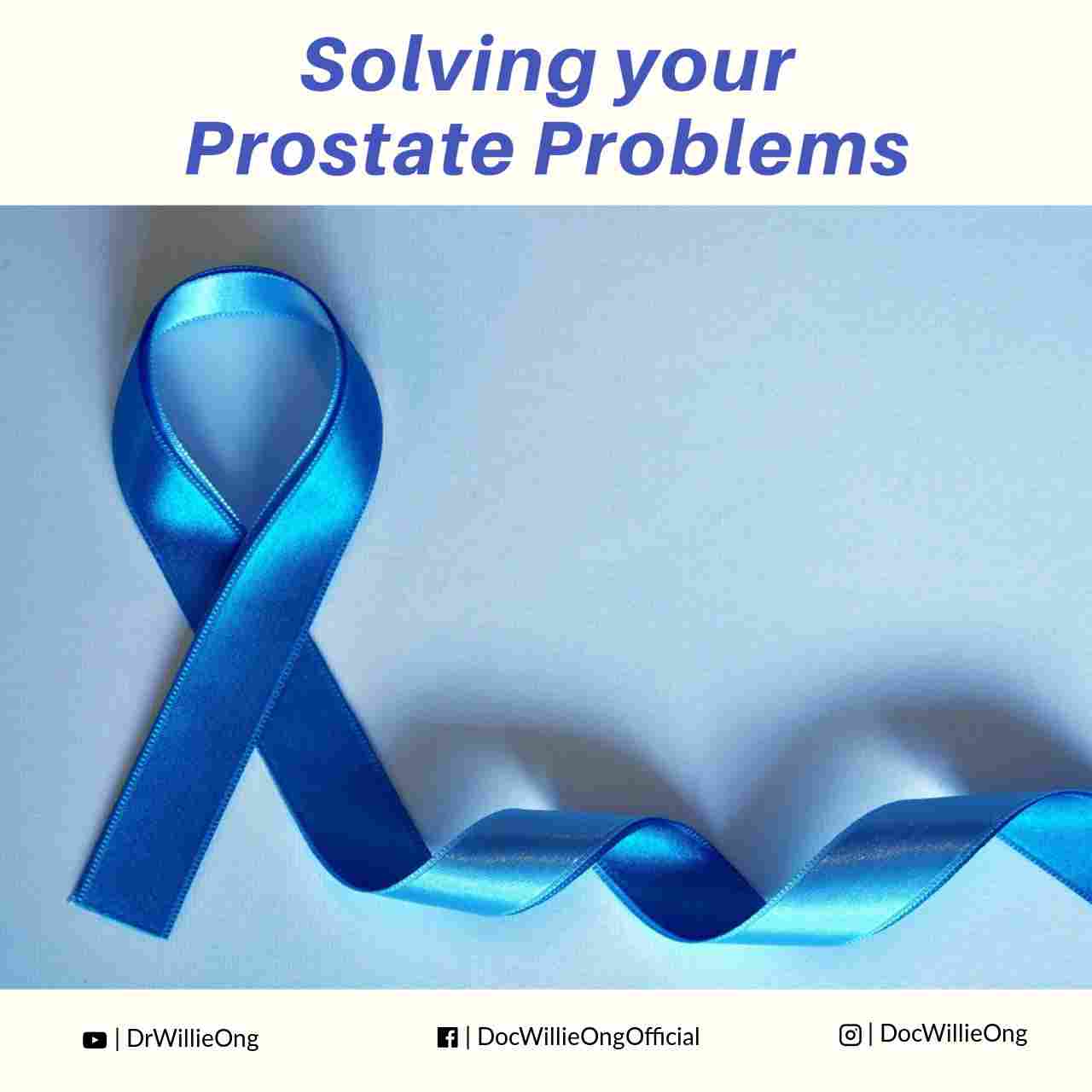Dr. Willie Ong (Internist and Cardiologist)
Why should men be concerned about their prostate? For one thing, studies show almost 50% of men over the age of 45 have some prostate enlargement. Moreover, prostate cancer is the number one cause of cancer in men. Thus, all men should learn about caring for their prostate.
The prostate gland is a male reproductive organ that produces a milky-colored fluid, called semen, which transports sperms during ejaculation. The prostate is the size of a walnut and it surrounds the male urethra, the tube where urine flows out from the urinary bladder.
When the prostate enlarges, this can impinge on the urethra, thus blocking the flow of urine. Hence, symptoms of prostate enlargement include frequent urination, dribbling of small amounts of urine, difficulty in starting urination and difficulty in holding one’s bladder. There is also a feeling that the bladder is not completely empty.
Medically, this problem is called Benign Prostatic Hypertrophy or BPH. It is believed to be caused by the natural hormonal changes in men. As men age, testosterone levels decline, while estrogen-like hormones increase.
The main risk factors for prostate enlargement are aging, heredity and racial origin. First, half of men in their sixties have some urinary symptoms attributable to the prostate. Second, if your father has prostate enlargement, you have a greater chance of getting the problem, too. Third, studies show that prostate enlargement is more common in white and black men, and less common in Asians. A fourth possible cause is a diet that is high in fat and low in fiber.
An enlarged prostate also makes one prone to bladder infections and stones. To diagnose prostate problems (including prostate cancer), doctors usually perform a digital rectal exam (DRE), which is the insertion of a gloved finger inside the rectum to assess the size of the prostate. A PSA blood test, a urinalysis, and a special ultrasound of the prostate are often requested, too.
There’s no hard rule, but men can start having their prostate checked after age 40. In the meantime, let’s look at ways to help prevent and treat an enlarged prostate.
Prevention Tips:
- Don’t hold your bladder for a long time. It can strain your bladder and kidneys. Next time, go to the bathroom when you feel the urge.
- Drink 8 to 12 glasses of water a day. Try drinking a glass of clean water every two hours to keep fluid flowing through the kidneys. Keep your urine color on the light side.
- Eat foods high in lycopene. These include tomatoes, ketchup, tomato sauce and spaghetti sauce.
- Take note that cooked tomato products are more beneficial than fresh ones. Studies suggest that we should eat ten tablespoons (150 ml) of spaghetti sauce every week. Just skip the meat balls (it’s meaty and fatty) so as not to detract from the beneficial effects of lycopene.
- Drink decaffeinated green tea instead of coffee. Green tea helps fight cancer and removes toxins from the body.
- Eat high fiber foods like whole grain foods, vegetables (like cabbage, lettuce, camote tops, kangkong and okra) and fruits (like watermelon, banana and apple with skin).
- Avoid all fatty foods. Bad fats and saturated fats lead to inflammation of the arteries and have been associated with several prostate diseases. Eat fish instead of meat. It’s good for the heart and blood vessels, too.
- Avoid sweet and sugary foods, and drinking too much soft drinks and iced tea.
- Avoid or limit alcohol and coffee intake. These can irritate the prostate. However, a cup or two of coffee a day is fine.
- Keep warm. Colder temperatures can cause you to retain urine and increase the urge to urinate.
Natural Treatment Options:
For these options, talk to your urologist first before taking any of these supplements.
- Saw Palmetto is made from ripened berries of the saw palmetto shrub. According to the Journal of the American Medical Association (JAMA), taking saw palmetto may reduce the symptoms of prostate enlargement. Previous studies suggest that saw palmetto is comparable to drugs like finasteride in effectivity. However, newer studies are less favorable. One benefit of saw palmetto over drugs is the absence of side effects.
- Other promising natural remedies include Pygeum extract, Nettle root and Pumpkin seed oil.
- Take a multivitamin daily with zinc.
Medical Treatment Options:
Take note that the medical treatment listed below needs your doctor’s supervision.
- Terazosin (Brand name Hytrin) – These drugs (called alpha blockers) are very fast and effective in improving urine flow. Its effect can be felt in 24 to 48 hours after intake. Just make sure that your blood pressure is adequate (120/80) because it can lower your BP.
- Finasteride (Brand name Proscar, Finarid) or Dutasteride (Avodart) – These drugs (called 5-alpha reductase enzyme inhibitors) are given to patients with very large prostates. Unlike Terazosin, these drugs work in the long term, and takes around three months for the prostate size to be reduced.
These drugs for the prostate are quite expensive. Hopefully, more generic drugs will come out so that more Filipinos can enjoy the benefits of these drugs.
If medical treatment fails, urologists can advise laser treatment (heating of the prostate) or surgery. Don’t worry. Consult your urologist and ask about your options first. Good luck!



